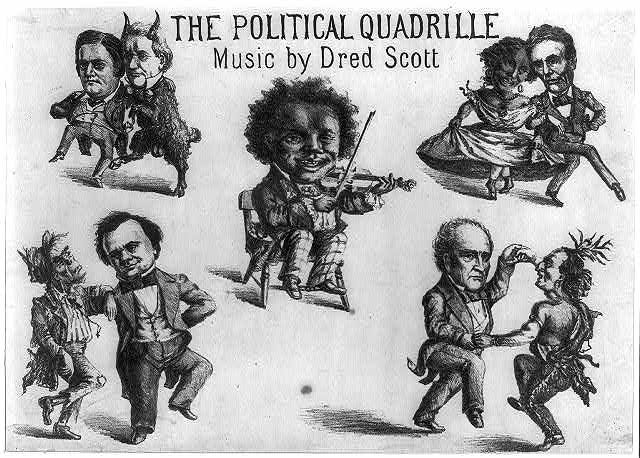(Links to Part I, Part II and Part III)
“Most of the pro-slavery votes in the Kansas territorial legislature election in 1855 turned out to be fraudulent,” Jude remembered.
“Well worth it, my boy. We turned back the tide of slavery.”
“Even with all those bullets in you?”
Martin gripped Jude; his strength stronger than expected. “You’re not finished, boy!”
Jude gritted his teeth.
“Despite Kansas’ rejection of slavery, in 1857 Justice Taney of the Supreme Court ruled in the Dred Scott decision that Congress lacked the power to prevent slavery from spreading to the Western territories and slaves are property and are not made free by living in free territories,” he remembered. “Dred Scott’s case was rejected by Taney because colored people are not American citizens, free or enslaved, and, thusly, he had no right to sue for freedom.”
“Justice Roger Taney, honored son of Maryland!” sneered Martin. “I remember him from his Frederick days. That mealy, sniveling, cretin of inferior intellect better suited for cannibalistic rats! Only such a fool would have the audacity to claim Negroes as beings of an inferior order and who had no rights which the white man was bound to respect. And calls himself a Christian! Papist, of course. Secret servant of his most Catholic majesty the Pope, which allows him to assault Christian decency with his tomfoolery language belonging to the Devil!”
Invisible pain wracked Martin’s body. He gasped. The breathing turned heavy.
“Not only did the Supreme Court state colored people could never be citizens, the court also implied that while Massachusetts or Ohio could declare themselves free states, it made no difference as long as the owner of the slave remained a resident of a slave state.” Jude said, staring at his father writhing in pain.
Keep reading with a 7-day free trial
Subscribe to Quest for Justice to keep reading this post and get 7 days of free access to the full post archives.





